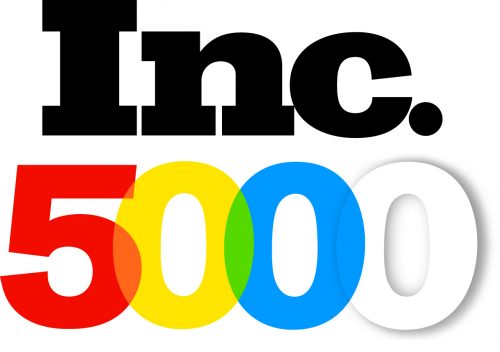According to a recent study, 80 percent of Americans hold debt.
Lines of credit can allow us to do things that otherwise might not be possible—such as buy a home or pay for tuition. However, when debt becomes unmanageable, this can take a toll on your financial stability, your credit score, and even (as research has found) your health.
Fortunately, escalating debt is not a life sentence. Even though getting out of debt isn’t easy, it is possible.
Enter debt consolidation vs bankruptcy.
If reducing spending and increasing debt payments is not an option, these are two ways you can work towards a debt-free state. Before you decide on your course of action, however, you need to familiarize yourself with how these two options compare.
If you are eager to clear the slate on out-of-control debt, read on.
Debt Consolidation
Debt consolidation is the umbrella term for consolidating all of one’s debt so that you only have one payment to make every month.
This can be done in a variety of weighs and holds a couple of key benefits.
One way to do consolidate your debts is to take the do-it-yourself path. You can choose one of two options here.
Balance Transfer Cards
One method of DIY consolidation is to use a balance transfer card for consolidating credit card debt. By transferring the balances on your higher interest cards into a balance transfer card you can, in some cases, take advantage of lower interest rates and, possibly, zero-fee transfers.
This avenue might not always secure significantly lowered interest rates—or lower payments. However, it is guaranteed to make give you only one monthly credit card payment to keep track of.
Debt Consolidation Loans
Another way to consolidate your debt is to apply for a debt consolidation loan. This loan pays off your existing debt.
After this, you will then have to pay off the loan in monthly installments. The advantage of this option is that you can combine your debt payments and often be able to secure a lower rate of interest on the total debt.
For example, say you owe a total of $7,000 over three credit cards, with interest rates roughly around the national average interest rate for credit cards of $21.26%.
If you lower these amounts by taking out a debt consolidation loan that has a lower interest rate, you will pay less interest.
Whether or not this option will prove profitable for you depends on your current interest rate, and what rate you can secure. The national average percentage interest rate on debt consolidation loans is currently about 18.56%, and ranges from 8.31% to 28.81%.
The exact interest rate that you will be able to secure depends on a variety of factors. These include:
- The lender you choose
- Your credit score
- Your credit history
- Your ratio of debt-to-income
When shopping for debt consolidation loan solutions, ensure that you research all of your options thoroughly to ensure that you get the best rates possible.
The Pros and Cons of Debt Consolidation
Debt consolidation holds a number of advantages, as well as a couple of cons. Let’s take a look.
Pros
The advantages of debt consolidation are:
- It is less detrimental to your credit score than filing bankruptcy
- Your credit score can improve
- There is a significant chance that your overall interest rate might drop
- Consolidated loan/debt payments are easier to keep track of
- You maintain access to your lines credit
On the flip side, debt consolidation also has a couple of cons when compared to filing for bankruptcy.
Cons
The cons of debt consolidation are as followings:
- You might still not be able to make the monthly payments
- If your credit score is very low it will be hard to secure good interest rates
- Some debt consolidation loans require valuable assets (such as your home) as collateral
- It is unlikely that much of your debt will be ‘erased’ (as with bankruptcy)
Now its time to look at bankruptcy.
Bankruptcy Explained
If your income is too small and your debt too large for you to foreseeable manage payments or ever be able to pay off the amount—you can also consider filing for bankruptcy.
There are two ways to file for bankruptcy. These are Chapter 7 and Chapter 13.
Chapter 7 Bankruptcy Explained
Under Chapter 7 you are required to sell all assets that are not classified as exempt to pay for your debts. If you qualify, whatever debt that is remaining is then erased from your name at the end of the process.
Chapter 13 Bankruptcy Explained
Under Chapter 13, you have the option to keep certain non-exempt assets. However, you are required to continue paying non-discharged debts over a period of 3-5 years. This is usually through a single monthly payment to an administrator.
At the end of this period, any remaining debt that you have not paid is nulled.
Bankruptcy Pros
The most significant advantage of filing for bankruptcy is that all or a portion of your debts can be wiped away. This can give you a fresh start financially.
It will also protect you from:
- Foreclosures
- Repossessions
- Wage garnishments
- Debt collection
- Utility shut-offs
If you choose to file under Chapter 7, the process is also relatively fast, usually meeting completion in under 6 months.
Bankruptcy Cons
Although the benefits can be attractive, there are also a few hefty cons associated with filing for bankruptcy.
Firstly, not everyone is eligible to file under Chapter 7. Also, debt such as alimony, child support, taxes, and student loans are not discharged by bankruptcy.
Lastly, and most seriously, filing for bankruptcy severely affects your credit score. It will be very difficult for you to take out credit or apply for a home loan. You may also experience problems securing rentals and employment contracts.
Together, these effects can have a significant impact on your life.
Debt Consolidation vs Bankruptcy: Which Is Better?
When deciding between debt consolidation vs bankruptcy, the deciding factor will be your situation.
Will it be, under your current circumstance, unforeseeable to be able to pay off your debt? If so, filing for bankruptcy might be a worthwhile consideration.
However, in all other circumstances, it is generally ill-advised to take this risk. Instead, you should at least initially look into consolidation options to see if there is a solution that can work for you.
If you are not sure where to start, then take a look at our debt consolidation matching service. Simply enter your details, and we will provide instant and tailored matches for the smartest solution for you.




